Two important milestones shaping the development path
After 80 years of independence, Vietnam has achieved many important economic achievements. This journey is not only about impressive growth figures but also a testament to the creative and resilient will of the entire nation.
On August 31, Dan Tri newspaper organized an online discussion "80 years of Independence - Economic mettle, development aspirations". The guests looked back on the journey of 80 years of Vietnam's economic mettle, and shared aspirations and solutions for the economy to continue to break through and reach the regional and world level.
Dr. Bui Thanh Minh, Deputy Director of the Office of Private Economic Development Research (Department IV), shared that Vietnam's economic development over the past 80 years has had many ups and downs. Over the past 80 years, our country has experienced war, difficult periods due to embargoes and restrictions from the initial orientation that were not really suitable.
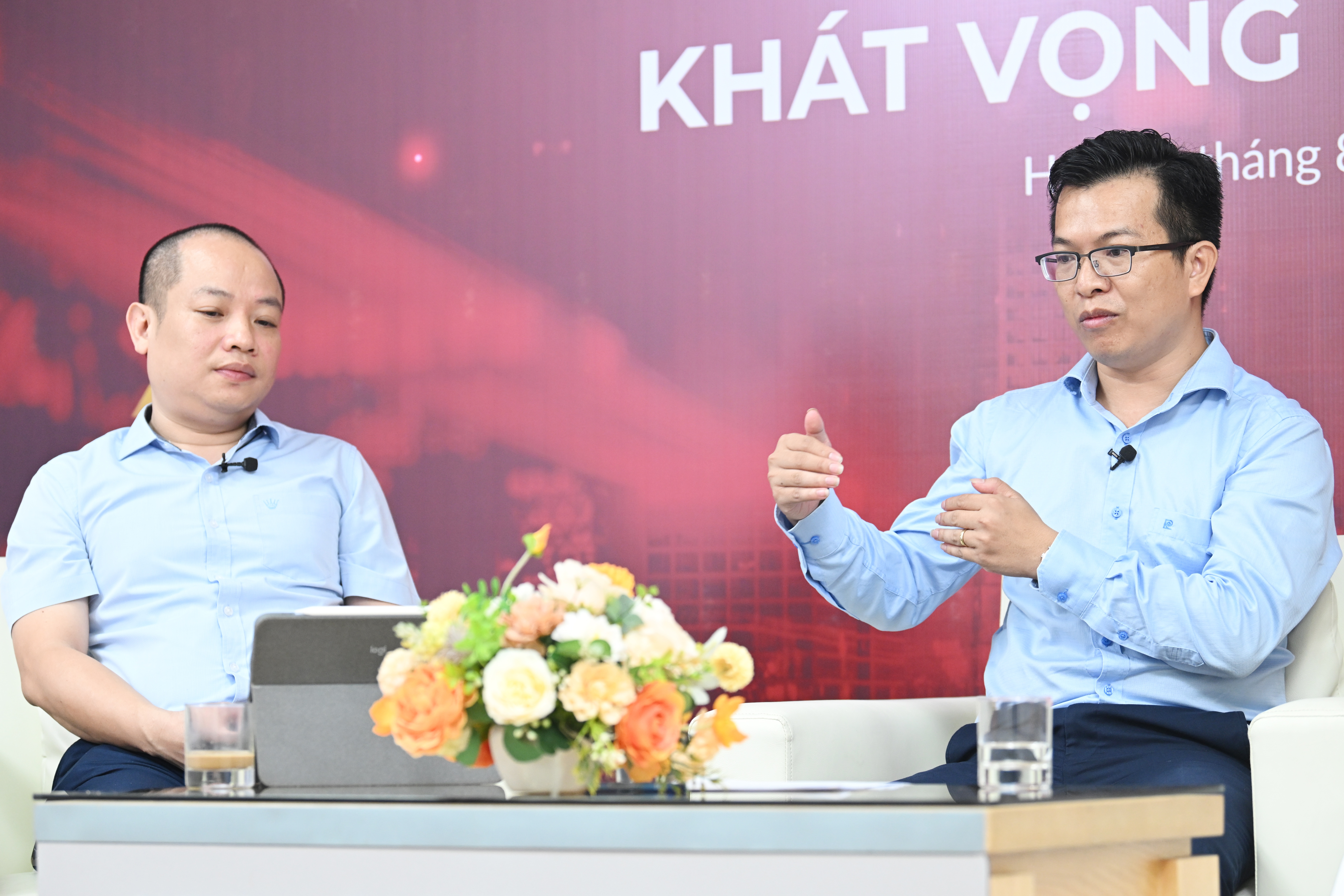
Guests at the seminar "80 years of independence - Economic courage, development aspirations" organized by Dan Tri newspaper (Photo: Manh Quan).
On the journey of learning and development, we have made mistakes, but the important thing is that we have learned to stand up, adjust and overcome in the context of a rapidly changing world situation. If we look at the entire journey to choose a prominent milestone, it must be very difficult, because each stage leaves a strong mark.
However, there are two particularly important milestones that have shaped the path of national development. The first is 1975, when the country was completely unified, the country was reunited. This is the fundamental and prerequisite condition for all subsequent steps of development, including economic development.
The second important milestone was in 1986, when the country carried out the Doi Moi process, shifting from a centralized bureaucratic subsidized economic mechanism to a socialist-oriented market economy. This was the new “compass”, creating a historical turning point when the nature of production relations was changed, and productive forces were liberated.
Agreeing with the above opinion, Mr. Vu Thanh Thang, Director of CAIO Artificial Intelligence - Founder of SCS Cyber Security Joint Stock Company, said that in 1986, the country shifted from a subsidized economy to a socialist-oriented market economy. He believes this is the most important milestone of the economy. At that time, the market had large enterprises such as FPT, CMC ...
Mr. Thang said that the most important issue for businesses was in 1995 when we normalized relations with the US, lifted the embargo, and began to develop agricultural, forestry and fishery exports globally.
In 1997, Vietnam started connecting to the internet. He believes that this is an infinite source of knowledge that we have. With the knowledge of the whole world, Vietnamese enterprises will have strong development steps, which is an important factor for enterprises. For enterprises, in addition to self-production, it is also about connecting with the world, how to bring technology products to the world.
Vietnam is on the journey towards high income status.
According to Dr. Bui Thanh Minh, Vietnam has recorded remarkable achievements, from a poor country quickly rising to become a rice exporting country, and has now become one of the world's leading agricultural exporting countries.
Mobilizing the strength of economic sectors and arousing the spirit of nation building among the people and businesses has created great achievements. After 40 years of renovation, from a poor country, Vietnam has risen to become a middle-income country and is on the journey towards the goal of becoming a high-income country.
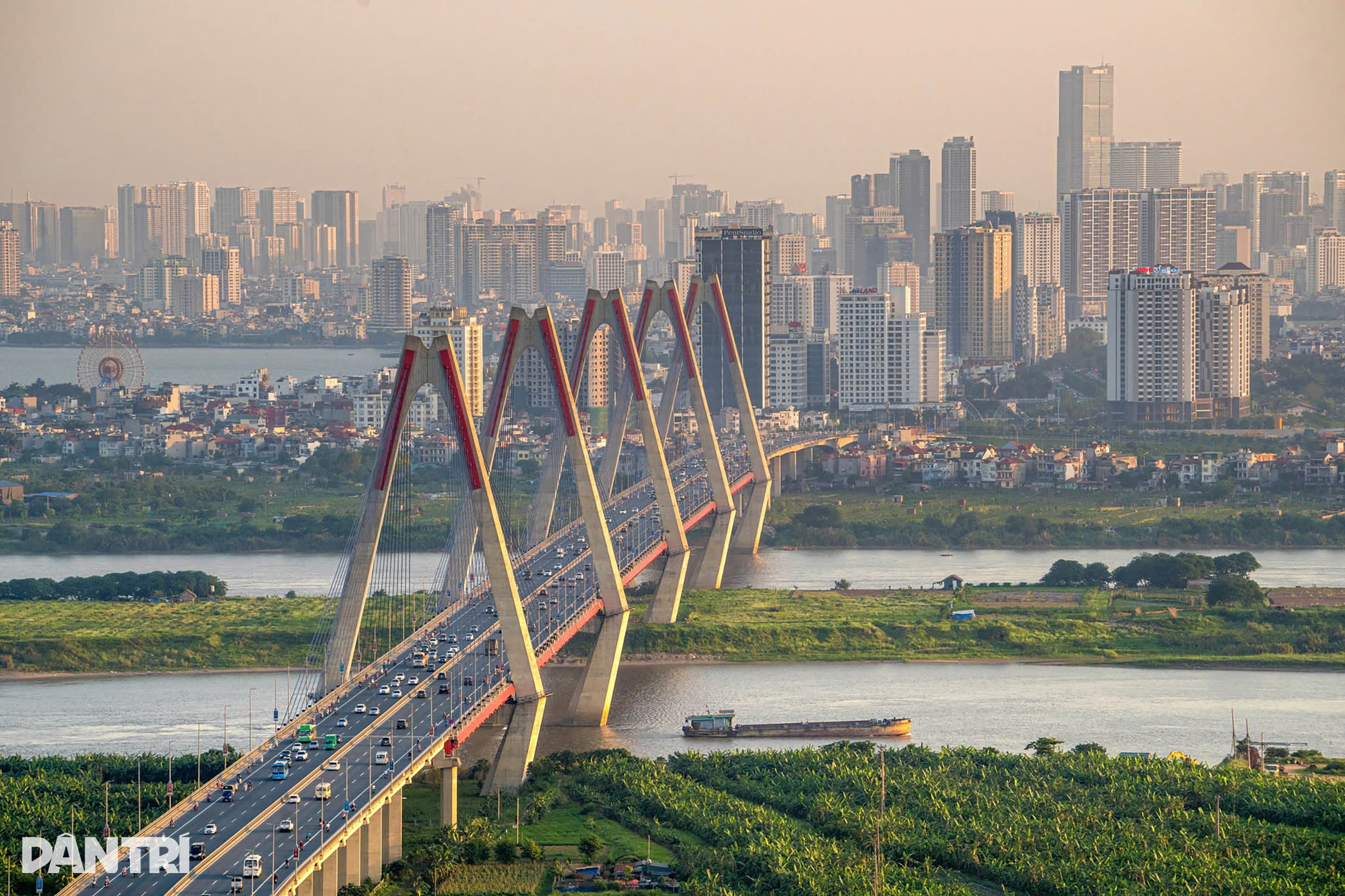
Vietnam aims for an average income of nearly 4,800 USD (Illustration: Manh Quan).
According to Mr. Minh, if looking at the whole picture in 2024, Vietnam's GDP will reach 476 billion USD, ranking 33rd among the world's largest economies. In addition, Vietnam's growth rate is among the top countries with fast and stable growth rates. This year, Vietnam aims for an average income of nearly 4,800 USD, meaning that Vietnam has stepped one foot into the group of upper middle-income countries - a very remarkable achievement.
Regarding FDI attraction, in 2024 Vietnam attracted more than 38 billion USD. Since opening up for integration, Vietnam has always been a country that attracts good FDI in the world. The economy has also recorded great achievements in exports, with import-export turnover in 2024 reaching 786 billion USD, Vietnamese goods have been present in many key global markets, affirming quality and trust in the international value chain.
In addition, economic development has brought direct benefits to the people. Life has been improved, the poverty rate in 2024 will be below 2%, of which multidimensional poverty will be about 4% - very proud numbers. Vietnam has also participated in many global value chains and signed many FTAs: there are currently 20 FTAs, of which 16 have been implemented.
Looking at the results of the 2024-2025 period and reflecting on the past 80 years, we can see outstanding achievements. Firstly, building an independent and self-reliant economy, associated with the independence of the country and the freedom of the people and businesses.
Second, forming a modern, integrated economy, with many large corporations operating in Vietnam, Vietnamese goods appearing on the global market, and at the same time pioneering important international issues such as green transformation, towards netzero. Third, economic achievements enter people's lives, helping people to be independent, free and towards happiness.
Over the past 80 years, people have enjoyed many results from socio-economic development. This process has also created an important economic, social and institutional foundation, opening a new era - the era of rising up. From overcoming the difficulties of war and external fluctuations, Vietnam has transformed from a poor country to a middle-income country. In the next 20 years, the big goal is to make Vietnam one of the advanced countries, achieving high income by 2045.
The strategic quartet in a new development phase
Dr. Bui Thanh Minh said that Vietnam is entering a pivotal year of a new development phase, which can be boldly called innovation 2.0, when it has a "strategic quartet": Resolution 57 on science and technology development, innovation and digital transformation; Resolution 68 on private economic development; Resolution 66 on institutional breakthroughs; and Resolution 59 on international integration, along with upcoming resolutions on education and health.
These resolutions have clarified the content of a new growth model, emphasizing the need to rely on science, technology, and innovation, instead of relying on resource and labor intensity as in the past 30-40 years.
With Resolution 68, he said, Vietnam has created fair rules of the game, liberating the private economic sector - which has the ability to accept high risks, pioneering in innovation and developing science and technology. When combining the strategic quartet with the following resolutions, we almost have a complete framework for the growth model in the new era.
In economic development, two models are often mentioned: the East Asian model (Japan, China) and the Southeast Asian model (ASEAN countries). East Asia's success is based on an export-oriented economy, a developmental state, and the leadership of large enterprises in the global value chain.
In the current context, businesses also have many advantages. As the growth model shifts to one based on innovation and science and technology, national tasks are assigned to the private economic sector, opening up new opportunities.
First, political and macroeconomic stability provide an important foundation, especially when compared to global geopolitical instability. Second, the new growth model promotes innovation and enhances scientific and technological capacity – a decisive factor in becoming a high-income country. Without relying on science and technology, Vietnam will find it difficult to increase the value of goods and join the high value chains of advanced countries.
He said that moving from a poor country to a middle-income country is relatively simple, thanks to growth based on resources and labor. But moving from a middle-income country to a high-income country requires optimizing the use of resources and increasing labor productivity. This requires innovation, bringing the country up the value chain.
If successful, Vietnam will become a bright choice in the 21st century, according to many international experts and businesses. Finally, the policy environment plays a key role.
Over the past 30 years, Vietnamese enterprises have accumulated management knowledge and experience in accessing international markets, especially since the US lifted the embargo in 1995. They not only understand the domestic market, but also have the aspiration to reach out globally. The increasing presence of Vietnamese enterprises in the international market is a clear demonstration of economic sovereignty and national aspirations.
Mr. Vu Thanh Thang said that businesses need to set double standards, because rapid development and green development are contradictory. For example, with such a goal, how much percentage should be set for green development? This is a key factor because without specific goals, it will be impossible to measure and we will not know where we are.
The second important factor is the application of science and technology in business operations. If high technology can be applied in business operations, it will reduce many costs related to human resources, environment and nature, and transform from a fast model to a model that creates great values.
Vietnam is at the center of the 4.0 revolution, with data and AI at the core. Mr. Thang strongly believes that AI will help our country make profound changes, develop quickly but still develop sustainably.
Source: https://dantri.com.vn/kinh-doanh/viet-nam-sau-80-nam-doc-lap-thanh-qua-kinh-te-ruc-ro-co-hoi-lon-20250830205028002.htm



![[Photo] Lao President Thongloun Sisoulith and President of the Cambodian People's Party and President of the Cambodian Senate Hun Sen visit the 95th Anniversary Exhibition of the Party Flag Lighting the Way](https://vphoto.vietnam.vn/thumb/1200x675/vietnam/resource/IMAGE/2025/9/2/3c1a640aa3c3495db1654d937d1471c8)

![[Photo] National Assembly Chairman Tran Thanh Man meets with First Secretary and President of Cuba Miguel Diaz-Canel Bermudez](https://vphoto.vietnam.vn/thumb/1200x675/vietnam/resource/IMAGE/2025/9/2/c6a0120a426e415b897096f1112fac5a)
![[Photo] National Assembly Chairman Tran Thanh Man receives First Vice Chairman of the Federation Council of Russia](https://vphoto.vietnam.vn/thumb/1200x675/vietnam/resource/IMAGE/2025/9/2/3aaff46372704918b3567b980220272a)


![[Photo] Beautiful images of the marching blocs at the 80th National Day Celebration](https://vphoto.vietnam.vn/thumb/402x226/vietnam/resource/IMAGE/2025/9/2/2ae930dfd77b442f9ac75f181d7f4bd6)

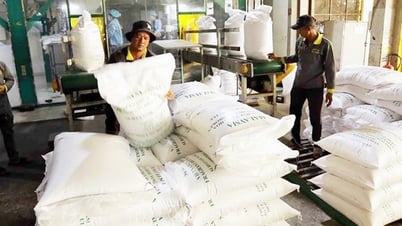






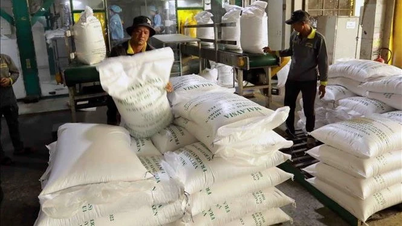





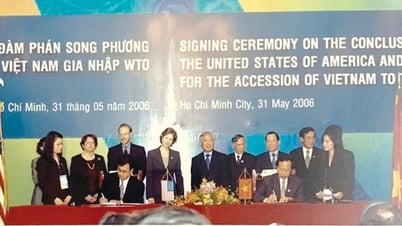


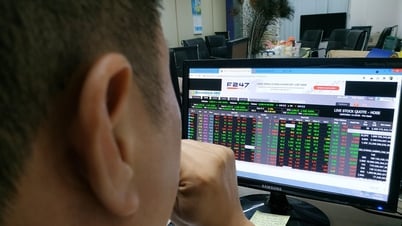






















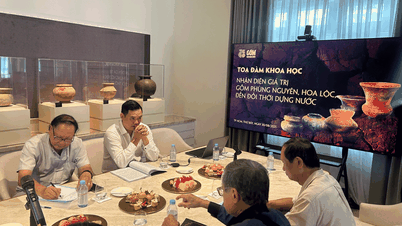







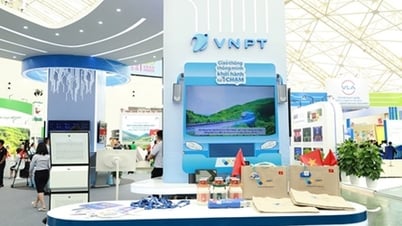






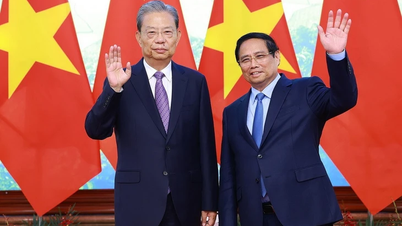








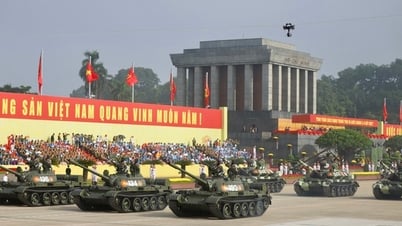
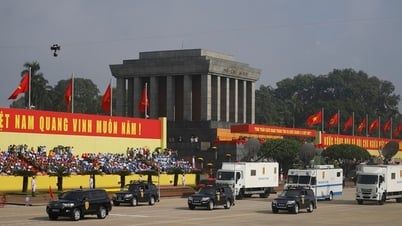

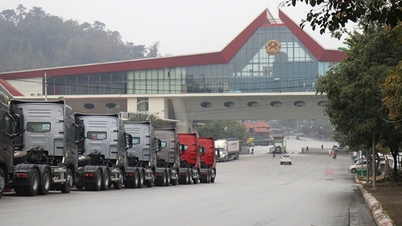

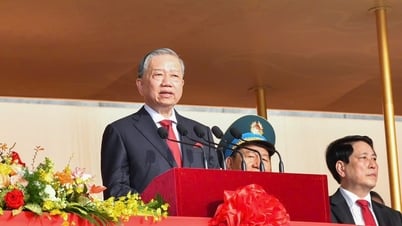



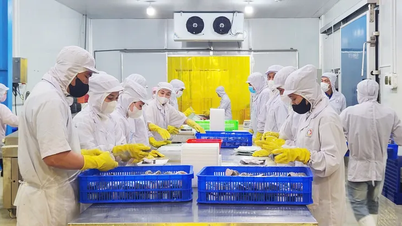











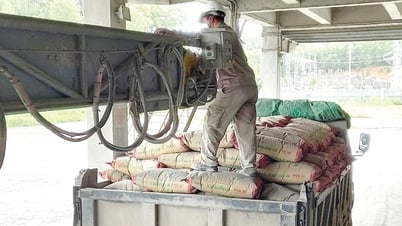

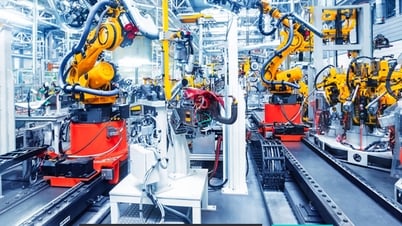

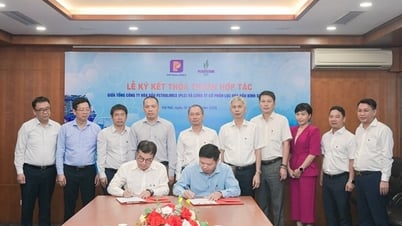

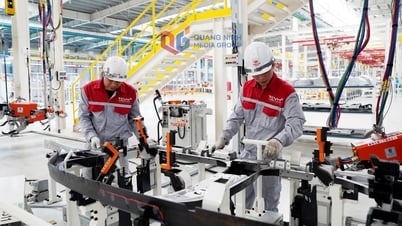





Comment (0)